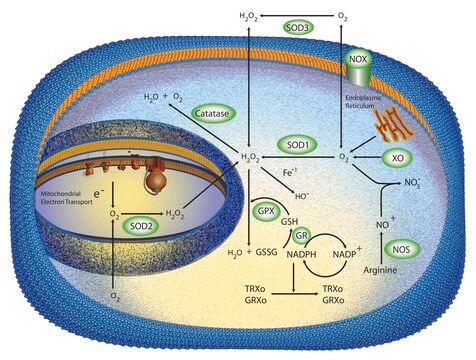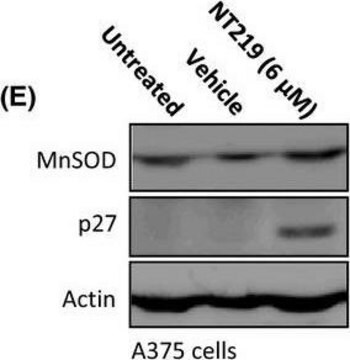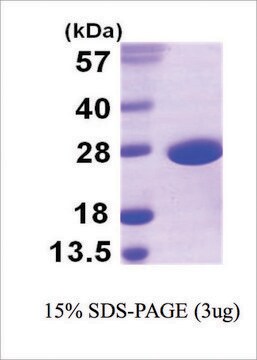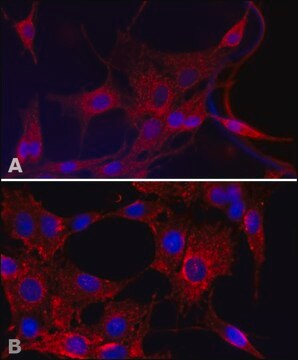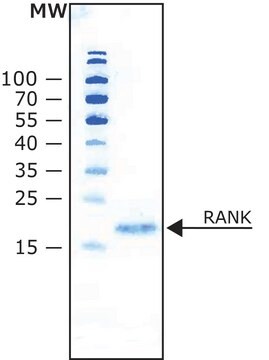S1450
Anti-Superoxide Dismutase (MnSOD) (DD-17)−Cy3 antibody produced in rabbit
1-2 mg/mL, affinity isolated antibody, buffered aqueous solution
Synonym(s):
Anti-IPO-B, Anti-Indophenoloxidase B, Anti-MNSOD, Anti-Manganese Superoxide Dismutase 2, Anti-Manganese dependent SOD, Anti-Mitochondrial SOD, Anti-SOD2, Anti-Superoxide dismutase 2
About This Item
Recommended Products
biological source
rabbit
Quality Level
conjugate
CY3 conjugate
antibody form
affinity isolated antibody
antibody product type
primary antibodies
clone
polyclonal
form
buffered aqueous solution
species reactivity
human, rat, mouse
packaging
antibody small pack of 25 μL
concentration
1-2 mg/mL
technique(s)
direct immunofluorescence: 2-5 μg/mL using human HeLa, rat NRK and mouse 3T3 cells.
UniProt accession no.
shipped in
dry ice
storage temp.
−20°C
target post-translational modification
unmodified
Gene Information
human ... SOD2(6648)
Related Categories
General description
Immunogen
Application
Biochem/physiol Actions
Physical form
Disclaimer
Not finding the right product?
Try our Product Selector Tool.
related product
Storage Class Code
10 - Combustible liquids
Flash Point(F)
Not applicable
Flash Point(C)
Not applicable
Choose from one of the most recent versions:
Certificates of Analysis (COA)
Don't see the Right Version?
If you require a particular version, you can look up a specific certificate by the Lot or Batch number.
Already Own This Product?
Find documentation for the products that you have recently purchased in the Document Library.
Our team of scientists has experience in all areas of research including Life Science, Material Science, Chemical Synthesis, Chromatography, Analytical and many others.
Contact Technical Service